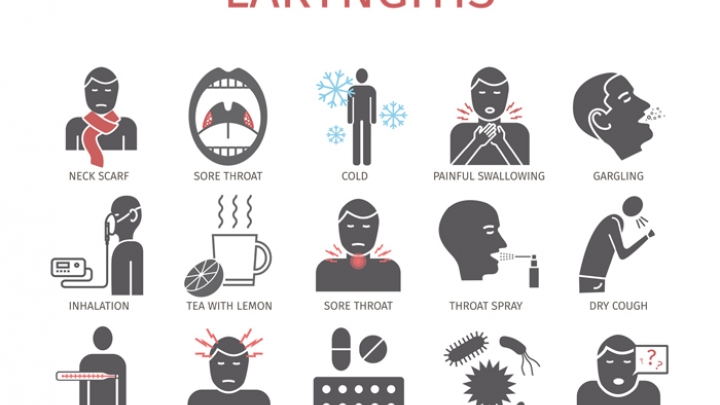You wake up one morning so hoarse it truly feels like there’s a frog in your throat—and it doesn’t go away. You may have laryngitis, a catch-all term referring to an inflammation of the larynx (voice box).
The larynx is the organ in your throat that contains the vocal chords. When the chords swell, they have a hard time vibrating and producing clear sounds. Thus your voice can sound muffled or even inaudible.
Laryngitis can be acute (lasting no more than a few days) or chronic (several weeks). But symptoms are similar—hoarseness, a scratchy sore throat, and a dry cough.
- Acute laryngitis is usually caused by a viral infection, such as a cold. Sometimes it is caused by vocal strain resulting from yelling, poor singing technique, or otherwise overtaxing your voice. It usually clears up once the underlying cause goes away.
- Chronic laryngitis is a little more complex.
- While overuse of your voice is often a factor, the condition may also be triggered by chronic exposure to an irritant. Finding the trigger may take some trial and error.
- Common irritants include smoking and secondhand smoke, chemical fumes, and pollen and other allergens.
Another cause of laryngitis is laryngopharyngeal reflux (LPR), which is similar to gastroesophageal reflux disease (GERD).
- In both disorders, stomach acids flow back into the esophagus, sometimes as high up as the throat, irritating and inflaming delicate tissue.
- According to some statistics, as many as half of all people with voice problems have LPR.
- The condition is hard to diagnose, in part because most people with LPR don’t have other classic GERD symptoms, such as chronic heartburn.
- Standard GERD treatments, such as drugs called proton pump inhibitors, often don’t work for LPR.
Clearing your throat
Acute laryngitis usually clears up on its own in a week or less. Still, it may help to do the following:
- Avoid speaking, if possible, or at least talk in a soft, breathy voice. Don’t whisper—that actually puts unnecessary pressure on your vocal chords.
- Use a humidifier if the air in your home is dry.
- Drink plenty of fluids, which will help thin the mucus around the vocal cords.
- Glycerine throat lozenges may help, too.
- Avoid alcohol, tobacco, and medications that contain decongestants or antihistamines, all of which can dry your throat.
If your symptoms persist more than two weeks, see your doctor, who may refer you to an ear, nose, and throat specialist.

